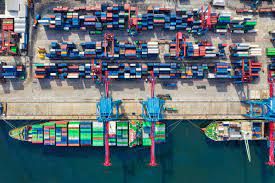Boost for Malaysia-UK trade
PETALING JAYA: Trade between Malaysia and the UK, which currently stands at £5.9bil (RM32.3bil), is set to get a boost this year with the latter’s accession to the Comprehensive and Progressive Agreement for Trans-Pacific Partnership (CPTPP).
British Malaysia Chamber of Commerce (BMCC) chief executive officer Jennifer Lopez told StarBiz that with the UK’s accession to the CPTPP – one of the largest free trade areas in the world, accounting for 21% of global GDP in 2021 – Malaysian exporters would benefit from the expanded preferential access to the UK market.
Before this, Malaysia was one of the CPTPP members which the UK does not have a bilateral agreement with, she added.
Therefore, joining the CPTPP means the UK would have a trade deal with Malaysia, a CPTPP member, for the first time, she said.
“This agreement reduces tariffs and other trade barriers, making it easier and more cost-effective for the UK to import goods and services from Malaysia.
“Through this, we will be seeing the UK eliminating import duties for a wide range of products such as palm oil, cocoa, rubber, electrical and electronics as well as chemicals,” Lopez added.
Malaysia currently imports more from the UK than it exports. As at the end of the third quarter of 2022 (3Q22), Malaysia was the UK’s 43rd largest trading partner.
In the four quarters to the end of 3Q22, the total trade in goods and services (exports plus imports) between the UK and Malaysia amounted to £5.9bil (RM32.3bil), an increase of 13.2% or £683mil (RM3.74bil) from 3Q21, and is on a growth trajectory.
Of the £5.9bil (RM32.3bil), total UK exports to Malaysia amounted to £3.3bil (RM18.1bil), while the total UK imports from Malaysia amounted to £2.6bil (RM14.2bil), an increase of 7.8% or £190mil (RM1.04bil) compared to the four quarters to the end of 3Q21.
The top five goods which UK exports to Malaysia (in the four quarters to the end of 3Q22) are cars, inorganic chemicals, mechanical power generators (intermediate), miscellaneous electrical goods (intermediate) as well as pulp and waste paper.
On the other hand, the top five goods that the UK imports from Malaysia are clothing, miscellaneous electrical goods (intermediate), refined oil, mechanical power generators (intermediate) and aircraft.
Lopez views Malaysia as an important and strong potential market for the UK.
She said Malaysia has, for many years, been an attractive destination for British investors, which is reflected by the UK’s strong investment footprint in Malaysia.
“The presence of British companies in Malaysia can be traced back to the 19th century, with financial institutions like Standard Chartered and HSBC establishing their presence then.
“Located in the heart of South-East Asia, Malaysia offers a convenient and cost-effective location for investors to set up their regional operations.
“The importance of Malaysia as the market entry point into the Asean market is evident as Malaysia is the UK’s second-largest trading partner in Asean,” she added.
Furthemore, she said Malaysia is known for its supportive government policies that benefit businesses, a responsive and attentive government and its agencies, as well as fair tax and generous incentives to help businesses grow and prosper.
In addition, Lopez noted that the infrastructure and connectivity in Malaysia are well-developed and maintained, with international airports and seaports, making doing business in the region effective and efficient.
Another competitive advantage that Malaysia has in the region is its young and talented individuals who build a competitive and highly skilled workforce.
“English is the main medium of business communication and has positioned Malaysia among multinationals as a destination of choice for business.
“Some of the sectors that have been benefiting through the UK-Malaysia relationship and will continue seeing benefits are the healthcare, education, technology, advanced manufacturing and clean growth sectors,” she said.
With the UK’s eventual accession to the CPTPP, the collective gross domestic product (GDP) of this free trade area is anticipated to grow from £9 trillion (RM49.3 trillion) to £11 trillion (RM60.3 trillion), reaching 15.4% of global GDP.
The CPTPP includes provisions that promote economic cooperation and innovation, which could benefit Malaysia in the long run.
The agreement covers areas such as intellectual property, eCommerce and government procurement, which could help improve Malaysia’s competitiveness and attract more foreign direct investment, she said.
With the UK’s membership, Malaysia stands to potentially attract more UK companies looking to take advantage of the benefits of the agreement.
“The BMCC believes that the UK’s accession to the CPTPP could bring several benefits for Malaysia’s trade and economic growth.
“We look forward to working with the government of both nations to strengthen trade and business relations between the UK and Malaysia,” she said.
Source: https://www.thestar.com.my/business/business-news/2023/04/10/boost-for-msia-uk-trade


 English
English




